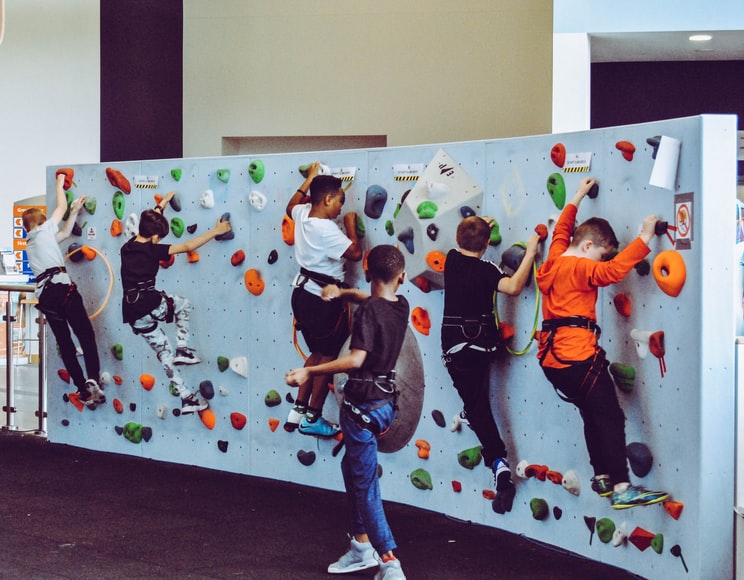BLOG
Health and safety in education | 5 fines from 2021 and focuses for 2022
Written by Scott Crichton on 4 January 2022

Whilst COVID-19 continues to create issues within education – particularly in respect to Omicron and the updated guidance issued in response to the government’s ‘Plan B’ – schools’ health and safety efforts should have now shifted to the other areas of health and safety that were outstanding prior to the pandemic.
Educational institutions have a duty to comply with the Health and Safety at Work etc Act 1974 and associated regulations. Like all employers, schools have a legal duty to ensure the health, safety and welfare of anyone who may be impacted by their activities, including staff, pupils/students, members of the public, volunteers and visitors (contractors, etc.), “so far as is reasonably practicable”.
So, while the virus continues to dominate the headlines, it’s worth reflecting on the various non-COVID related health and safety prosecutions that have occurred within the sector this year. These cautionary tales serve to reinforce the broad range of risk areas that schools and colleges need to manage, and will hopefully help you to reflect on potential weaknesses in your own safety management system so that you can start 2022 on a strong safety footing.
1. Fall from height lands Catholic High School in hot water with the HSE
In January 2021, the Governing Body of Christ the King Catholic High School and Sixth Form Centre were fined almost £16,000, after an assistant site manager fell from a height of more than three metres whilst removing footballs from a roof. The incident occurred back in October 2018.
It was established during the investigation that this was a common practice; however, there was no means to prevent a fall from edges such as roof barriers, edge protection or work restraint / fall arrest systems.
The Health and Safety Executive (HSE)’s statistics from RIDDOR show that falls from height continue to be the leading cause work-related fatalities in Great Britain.
How to prevent a similar incident
Schools must follow the AVOID, PREVENT and MINIMISE work at height hierarchy of controls to stop a similar incident happening in their schools.
All roofs are different and, as such, schools must ensure that an assessment of all work at height is undertaken and specifically for when persons are accessing roofs.
The assessment needs to consider the type of roof, the frequency at which access is required, by whom, and how this will be achieved safely using a reasonably practicable method of working.
Where practicable, work at height must be avoided in preference to other means to carry out an activity – such as cleaning windows at ground level using long-reach poles. Where avoiding work at height cannot be achieved, employers must prevent a fall from height by using safe means of access/egress such as Mobile Elevating Work Platforms (MEWPS).
Where an employer is unable to prevent a fall from height, then they must take all reasonable steps to ensure that if a fall does occur, the likelihood and consequences are minimised using items such as fall arrest systems. An employer can demonstrate consideration has been made and options thought of for work at height (using the hierarchy and dependent upon the time factor) through the risk assessment process.
Employers may be able to use ladders or stepladders; however, careful means need to be in place to do so, such as training, using the right ladder or stepladder.
Do you need support?
Speak to us for an honest, no obligation chat on:
0345 226 8393 Lines are open 9am – 5pm
2. Foundation school fined after trip results in fatal head injury
Back in February 2017, a member of the public attending a school evening performance at The Leys & St Faith’s Foundation School in Cambridge tripped over a small wall, sustaining a fatal head injury.
It was found that the school had failed to ensure the external area was well lit and did not have an assessment in place to identify the risk of tripping over the wall and the poor lighting conditions. It was prosecuted and fined in excess of £60,000 in March 2020.
How to prevent a similar incident
Slips, trips and falls remain the highest risk of non-fatal injuries to employees (as reported by employers) according to the HSE’s annual summary statistics 2021.
Schools must ensure that they assess the risks of slipping, tripping and falling within their school boundaries and ensure that suitable and sufficient lighting is in place internally and externally.
In areas that are deemed likely to cause a slipping hazard, a pendulum test (slip test) should be undertaken by a competent contractor. Where deemed to be necessary, LUX testing can be carried out by electrical contractors to ensure that internal and external lighting is deemed to be suitable and sufficient.
3. Nottinghamshire MAT fined for failing to control infectious disease risk
The Spencer Academies Trust, which operates 12 schools, was fined in excess of £25,000 after an investigation found that it had failed to provide adequate washing facilities to control the risk of disease to employees, pupils and visitors.
An investigation found that the trust hadn’t considered the risk of zoonotic diseases from several animals such as goats, pigs and rabbits. The HSE concluded that it had failed to take steps to sufficiently assess and suitably control the significant health risks posed to people and children.
How to prevent a similar incident
You can avoid an incident such as this in your school by ensuring that you have a suitable and sufficient risk assessment that thoroughly considers the infection and transmission risk from animals to humans in terms of zoonotic diseases. You should ensure that you have sufficient housing for the animals in question, as well as suitable washing and welfare facilities in order to provide a clean working environment.
Animals in schools provide a great resource; they can accommodate for different learning styles and calm down individuals. However, employers must do all within their power to ensure that animals and persons and well looked after.
4. High school fined after nine-year-old fatally crushed by falling locker
Great Baddow High School also received an approximately £25,000 fine after an incident which occurred during an after-school swimming lesson at the school’s sports centre. Doors to the lockers were missing, allowing for a pupil and his friend to use them as a climbing frame. Tragically, the lockers toppled over, falling on top of one of the boys.
Upon investigation, the 188kg lockers were found not to have been secured to the wall to prevent them from overturning, even though fixings were available for this purpose.
How to prevent a similar incident
By undertaking regular monitoring, this event could have been avoided had the school assessed the risk and taken reasonably practicable steps to secure the lockers to the wall.
The incident is a tragic reminder for schools to ensure that any free-standing furniture and equipment is reviewed, assessed and secured where deemed this is reasonable to do so.
5. Disturbed asbestos leaves school and contractor covered in a cloud of dust
Park View Academy and one of its contractors were fined in excess of £7,000 and £6,000 respectively for disturbing asbestos during works in February 2019.
The contractor and the school had failed to refer to asbestos registers and management plans that were in place prior to works taking place.
In last year’s round-up of health and safety prosecutions within education, we highlighted the costs to schools from poor management of health and safety, whereby fines for failing to manage asbestos in schools can be as high as £200,000.
How to prevent a similar incident
Employers can ensure that they have asbestos management surveys and Refurbishment and Demolition (R&D) surveys in place prior to work commencing. Schools must ensure that there is a clear evidential trail of when asbestos has been removed and maintain suitable records that have a logical trail and can be quickly and easily referred to by contractors, visitors and enforcement bodies.
Schools must also ensure that intrusive works are not started until asbestos information is clearly communicated to those who are undertaking the work. Where necessary, certain works are reportable to the HSE and work must not start until this has been undertaken.
Those in control of premises need to be aware of how to manage asbestos and therefore it is important to have undertaken suitable asbestos training for the type and volume of premises that the employer manages.
Key lessons for schools
All of the above incidents are easily avoidable. Some of the commonalities seen by our consultants working with most employers, and specifically schools, are:
Poor or outdated training.School leaders need to ensure that the school has a training matrix in place that defines what each role requires in order to meet the various legal duties that fall upon the school. Our useful Education Training Needs Analysis template, available to download below, provides a useful guide in respect to recommended training for schools.
Poor or no risk assessments covering significant hazards. Schools need to ensure that they have suitable and sufficient risk assessments in place for all significant hazards that are generated in the running and managing of a school environment. Below you can find lists of the risk assessments we believe are required for the majority of primary and secondary schools. Our blog on avoiding common risk assessment mistakes also provides helpful guidance.
Related Content
Keep your school safe in 2022 with WorkNest H&S
WorkNest has provided specialist support to the education sector for over a decade.
For more information on managing health and safety in your school, look out for our next Quarterly Education Breakfast Briefing. During these free sessions, our Health & Safety specialists take a more in-depth look at some of the key health and safety topics school leaders need to manage and offer practical advice to help you achieve compliance. Catch up with our most recent session here.
If you would benefit from ongoing, personalised support to help your school raise safety standards, minimise risk and stay compliant in 2022, WorkNest’s unlimited, fixed-fee service is the perfect solution. Our unique four-pillar approach, specialist sector knowledge and dedicated experts are just some of the reasons why schools choose to work with us. For more information and to discuss your specific needs, call 0345 226 8393 or request your free consultation using the button below.



